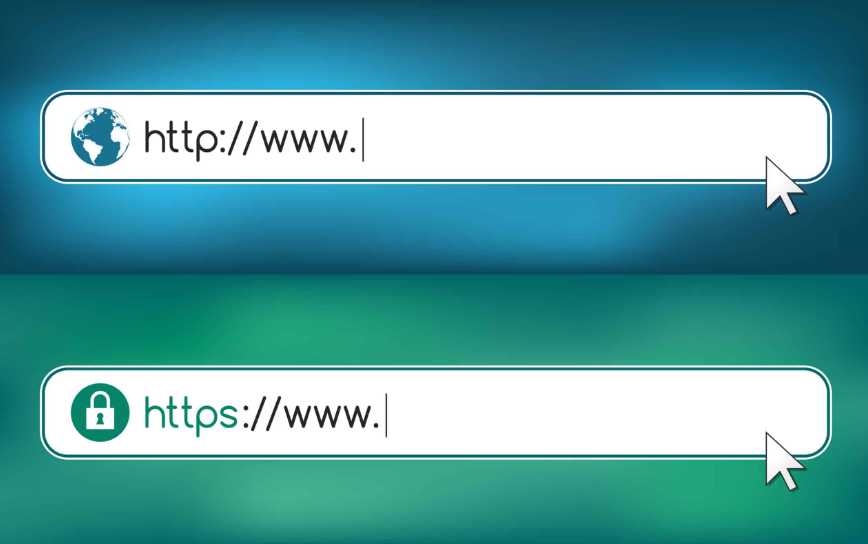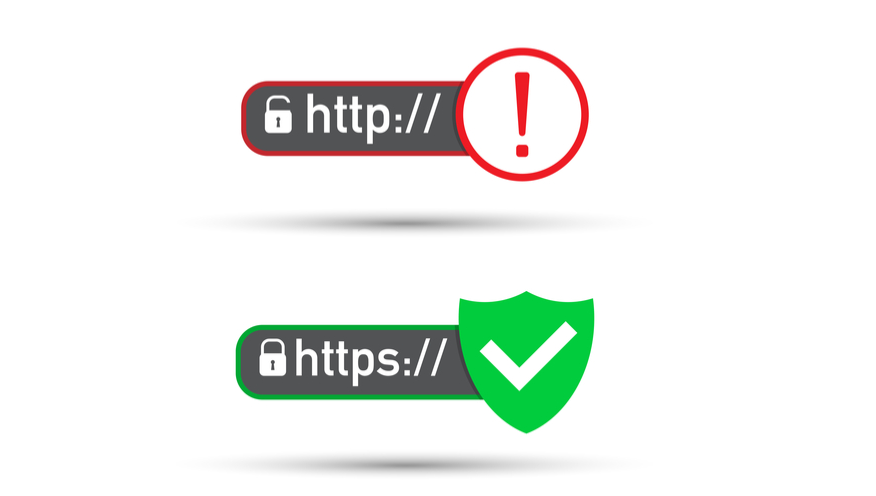The digital security of your website is a critical issue nowadays. It not only guards your priceless information and data, but it is also an essential part of getting better search engine optimization (SEO). HTTPS stands for Hypertext Transport Protocol over Secure Socket Layer. This is one way through which you can combine the security and SEO of your website. In the following article, we will check how HTTPS helps to increase your website’s SEO rankings and also to get more potential.
Understanding HTTPS and Its Importance for Security
HTTPS, an acronym for Hypertext Transfer Protocol Secure, signifies the gold standard in website communication, elevating the traditional HTTP to a level where user data is meticulously encrypted. This pivotal tech comes into play right in this critical moment of data protection, especially during the transmission of such sensitive information from a web server to the user’s browser.
Privacy protection has become more important as people today share personal information more widely than ever. Usually, such sensitive information includes login credentials, financial transactions, and personal data which can be intercepted by unauthorized parties if lost.
This can result in significant security breaches and violations of privacy. The main point of HTTPS is that it has powerful cryptographic protocols which are therefore used to avoid data manipulation and eavesdropping by cybercriminals. Confidentiality of the user info is thereby preserved and users are authenticated at the same time, hence gaining confidence that they are indeed interacting with the website they were aiming for.
The shift to HTTPS includes obtaining an SSL (Secure Sockets Layer) certificate which provides a digital pass to the security division where it can securely connect through encryption. This is the backbone mechanism for protecting the sites from cyber threats and nowadays, it has become mandatory for websites where there is dealing with sensitive data as well as non-sensitive data.
The necessity of HTTPS is not only adherence to data protection but as well as it is a basic element that enforces the trust and security infrastructure needed for the operation of an online system.
HTTPS as a Ranking Signal for SEO
Since its announcement by Google in 2014, HTTPS has been recognized as a critical factor influencing a website’s search engine rankings. Transitioning to HTTPS is not merely about enhancing site security; it’s a strategic move that can significantly impact your website’s position in search engine results pages (SERPs).
Google considers sites that provide security services such as HTTPS, a powerful sign that the company is conscious is sensitive to the issue of user protection online. Because of the reason above, sites that have HTTPS will see a boost in their SEO rankings and thus will be more visible to prospective visitors. Such a switch is a reflection of the role of HTTPS in a successful SEO policy, as the importance of providing users with a feeling of security grows by SPIDERing the site, which contributes to its trustworthy and authoritative image.
Implementing HTTPS signals to search engines that your website adheres to modern web standards of security and data protection, can directly influence its SEO performance. Consequently, adopting HTTPS is a critical step for any website looking to enhance its search engine visibility and competitive edge in the digital landscape.
Building Trust and Credibility with Your Audience
Having HTTPS in your site’s web address signifies your security awareness, and this can help build a good perception of the user regarding your website’s behavior towards security. This encryption protocol guarantees the site’s visitors relative safety as it ensures their activities—browsing, shopping, and sharing personal information—are encrypted against cyber threats.
This level of security is not only to protect the data; rather, it is where reliability and professionalism reflect, fundamental factors that make the Internet user feel satisfied today. The visitors will be eager to come back and advise credible folks about the site thus boosting the site’s reputation and possibly more user subscriptions.
However, the feeling of security and trust that relates to these safe browsing destinations allows users to spend more time on the site, explore it more carefully, and engage more willingly. This level of engagement, in addition to everything else, will bring the sign to a closer relationship with its visitors, and at the same time will be of great importance in the composition of the more powerful community, which will be more successful, around the brand.
The Impact of HTTPS on Website Speed and Performance
The widespread assumption that HTTPS might hinder your website’s performance is a misconception that needs to be addressed. In reality, websites enabled with HTTPS often experience enhancements in loading times and overall efficiency.
This is largely due to the integration of HTTP/2, a major revision of the HTTP network protocol, which many modern browsers require to be secured with HTTPS. HTTP/2 introduces several key improvements over its predecessors, such as multiplexing and server push, which allow for faster retrieval of web resources by managing multiple requests in a single connection and preemptively sending resources to a client before they are explicitly requested.
Additionally, the encryption process inherent in HTTPS, far from being a drag on site performance, can contribute to optimizing data transfer efficiency. This is because encrypted data can often be compressed more effectively than non-encrypted data, allowing for quicker transmission speeds.
Enhanced security protocols coupled with speed optimization mean that websites utilizing HTTPS are likely to deliver content more rapidly and reliably to their users.
It’s also important to note that search engines, including Google, have begun to use site speed as a factor in ranking algorithms. This means that the positive effect of HTTPS on website speed not only improves user experience but can also contribute to better SEO outcomes. Transitioning to HTTPS, therefore, supports a dual goal: bolstering site security while promoting superior site speed and performance.
Migrating to HTTPS: Steps and Best Practices
Embarking on the journey to migrate your website from HTTP to HTTPS can significantly enhance your site’s security and SEO posture. Begin by obtaining an SSL certificate from a reputable certificate authority. This certificate is a mandatory one for ensuring your website is protected from all malicious interferences.
Moreover, correct all the links within the website to the HTTPS links, thus preventing the loss of users’ experience to go to any broken link that might affect search engine optimization. Update of external resources and plugins to version HTTPS is of great importance to ensure the smooth operation and high security of the site.
A prerequisite for the continuation of the search engine ranking of your website is to implement 301 redirects which will mark the addresses’ permanent changes from HTTP to HTTPS.
Remember to update your site’s sitemap and robot.txt file to reflect the new HTTPS URLs, facilitating smoother crawling and indexing by search engines. These steps, when meticulously followed, pave the way for a successful transition to HTTPS, positioning your website for improved security, user trust, and search engine visibility.
Common Myths About HTTPS and SEO Debunked
The misconceptions surrounding HTTPS and its impact on SEO can deter many from making the shift, yet understanding the truth can clarify its significance. A prevalent myth suggests that HTTPS only holds value for websites handling financial transactions or personal user data, implying that content-based or informational sites need not bother.
This is misleading, as Google’s algorithm does not discriminate by site content when it comes to security, boosting rankings for all secure sites. Another common fallacy is the belief that transitioning to HTTPS is both financially burdensome and technically daunting.
Conversely, those who provide free SSL certificates nowadays and strike a perfect balance between cost-effectiveness and ease of implementation have a very positive impact on the accessibility of HTTPS, even for websites of all sizes.
Some also wrongly assume that HTTPS significantly slows down website performance, but as highlighted earlier, the adoption of HTTP/2 with HTTPS can enhance site speed. Untangling these misconceptions is a vital part of webmasters as well as site owners’ capabilities to apprehend all the advantages of HTTPS in terms of security and SEO which is worth their adoption eventually. This measure will cause the expansion of this vital protection in greater numbers.
Future-Proofing Your Website with HTTPS
An online world that is growing and changing quickly looks not only at the present but also at the future when it decides to be HTTPS. The digital domain is becoming highly complex which is why site safety and reliability should be guaranteed more than ever.
By converting to HTTPS, you build a resilient foundation that comes in line with the ongoing improvement of technology standards and security protocols. This is not just a way to address current needs, but a proactive step to gain a competitive advantage over other online services that develop every day.
The ever-growing focus of Google on safe browsing experiences further strengthens the need for HTTPS in ensuring and enhancing the ranking of the sites on the search engines. Such evidence shows that the impact of HTTPS will be ever greater, so more early adopters will have a clear advantage in the market.
Moreover, the trend of demanding more security would be another factor fostering the growth of the cybersecurity industry in the future. Having your website HTTPS-ready places you in the vanguard of these changing expectations and assures user trust and loyalty.
Adapting to HTTPS now means you are not just reacting to the current trends but are actively preparing for the future. With this progressive strategy, you are not only caring, but you are fully devoted to the improvement of security, dependability, and precaution, your target audience, industry, and search engines will see that.
However, HTTPS is not only a security feature. It is a sign of intent to make the best digital goods in an environment where changed products are created so fast.


